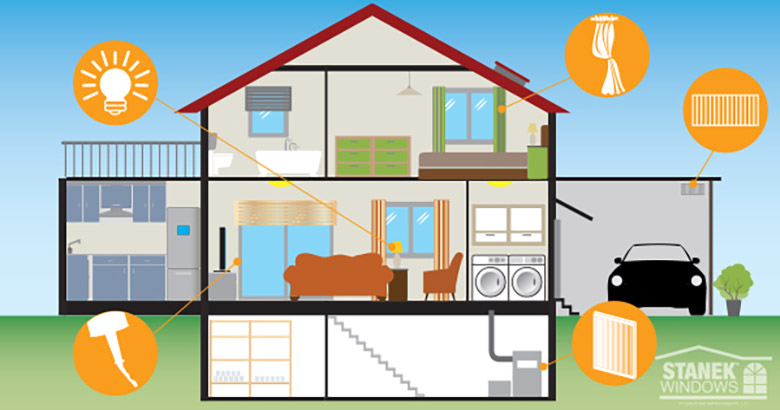In an era where sustainability is more than just a buzzword, saving energy is not only beneficial for the environment but also for our wallets. With the rise of smart technology and a better understanding of energy consumption, homeowners now have a plethora of ways to make their homes more energy-efficient. Here are some smart and effective tips to save energy at home:
1. Smart Thermostats
Invest in a smart thermostat that learns your schedule and temperature preferences. These devices can automatically adjust the temperature when you’re away, ensuring you’re not heating or cooling an empty house.
2. LED Lighting
Switch to LED bulbs, which consume significantly less energy than traditional incandescent bulbs and last much longer. They also come in various color temperatures to suit your home’s ambiance.
3. Seal and Insulate
Ensure that your home is well-insulated, and seal any gaps or drafts in doors and windows. This prevents the escape of warm or cool air, reducing the strain on your heating or cooling system.
4. Energy-Efficient Appliances
When purchasing new appliances, look for those with ENERGY STAR or similar certifications. These are designed to use less energy without compromising on performance.
5. Unplug Idle Electronics
Many electronics consume energy even when they’re turned off. Consider unplugging devices that aren’t in use or invest in smart power strips that automatically cut power to devices in standby mode.
6. Solar Panels
If feasible, consider installing solar panels. They can significantly reduce your electricity bills and even allow you to sell excess energy back to the grid in some regions.
7. Use Natural Light
Maximize the use of natural light during the day. Open blinds and curtains to reduce the need for artificial lighting.
8. Water Heating Efficiency
Lower the temperature on your water heater to around 120°F (49°C). Also, consider insulating your water heater and pipes to reduce heat loss.
9. Smart Home Systems
Integrate a smart home system that allows you to control lighting, heating, cooling, and other appliances remotely. This way, you can ensure optimal energy use even when you’re not at home.
10. Plant Trees Strategically
Planting trees or shrubs around your home can act as natural insulators. In summer, they provide shade, and in winter, they can act as windbreaks.
Conclusion
Saving energy at home is a combination of smart choices and effective habits. By implementing these tips, not only will you see a reduction in your energy bills, but you’ll also be contributing to a more sustainable and eco-friendly future.

